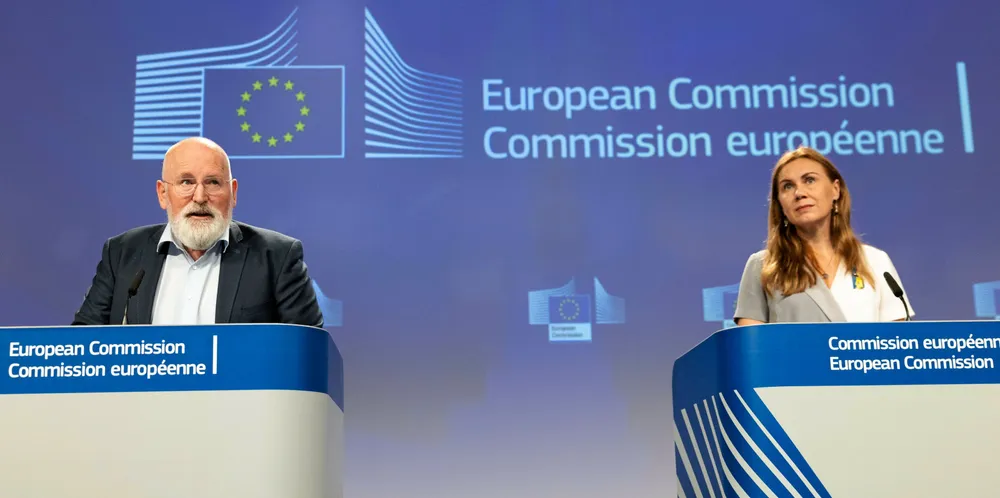'Ambitious but realistic' | EU in solar strategy targets to add 600GW and impose PV rooftop mandate
European Commission presents dedicated solar strategy in wake of REPowerEU plan to wean Europe off Russian fossil fuels

The European Commission has presented its proposal for a dedicated EU Solar Energy Strategy that foresees a doubling of targeted PV capacity to 320GW by 2025, and a further boost to almost 600GW by 2030, as the core part of the EU’s REPowerEU plan to end its dependency on Russian fossil fuels.
These front-loaded additional capacities displace the consumption of 9 billion cubic metres of natural gas annually by 2027, the Commission said.
The strategy also includes a solar rooftop obligation for commercial and public buildings by 2025 and for new residential buildings by 2029.
“I know that this is ambitious but it is realistic, we can do it,” Commission President Ursula von der Leyen said.
EU Energy Commissioner Kadri Simson added: “By 2030 the share of wind and solar energy in power production capacities should double from the current level of 33% to 67%.
“And by then solar energy will also be the largest electricity source in the EU with more than half coming from rooftops.”
The EU Commission in its presentation of the solar strategy said the massive deployment of solar energy is also a chance to reinforce the EU’s industrial leadership in the industry.
“By creating the right framework conditions, the EU can expand its manufacturing base, building on its vibrant competitive and innovation-driven environment while ensuring that solar products are up to the EU consumer’s high standards,” the Commission said in its statement on the solar strategy.
The EU’s module production capacity last year stood at 8.3GW, but from manufacturers with small capacities (sub-1GW) which mostly bought the solar cells for their panels in Asia.
“A strong European solar manufacturing base supports the strategic resilience of the renewable transition, while unlocking millions of euros in GDP,” SolarPower Europe head of regulatory affairs, Naomi Chevillard, said.
“The European Commission must now deliver a clear toolbox of measures, and coordinate EU financing to support reinvestment into manufacturing capacities.”
To help the solar re-industrialisation, the Commission creates an EU Solar Industry Alliance that is slated to convene actors along the value chain, supporting new, more efficient and sustainable technologies.
SolarPower Europe chief executive Walburger Hemetsberger called the solar strategy “a watershed for EU solar.”
“Along with a 45% renewable target, solar and wind are more empowered than ever to shield citizens from high energy prices. The European solar sector is ready to scale up and deliver on the ambition set out today.”
The strategy includes a new EU Solar Rooftop Initiative, with a solar mandate for all new residential buildings by 2029, and for all suitable public and commercial buildings by 2025 as part of the EU’s Energy Performance of Buildings Directive.
Solar rooftops according to conservative estimates could provide about a quarter of the economic bloc’s electricity needs, SolarPower Europe said.
To address the critical need of a skilled solar workforce, the strategy also includes an EU Solar Skills Partnership to bring together solar and training stakeholders, helped by local, private and EU funding.
“Solar rooftops are an immediate solution to the triple challenges of energy security, energy poverty, and climate emergency facing Europe,” said Dries Acke, policy director at SolarPower Europe.
“Today the European Commission recognises the immense potential of rooftop solar – as well as the need for a solar workforce to roll out both rooftop and utility solar across Europe.
“We foresee up to 1.1 million solar jobs in Europe by 2030, and the EU Solar Skills Partnership will help deliver the workers on the ground.”
(Copyright)